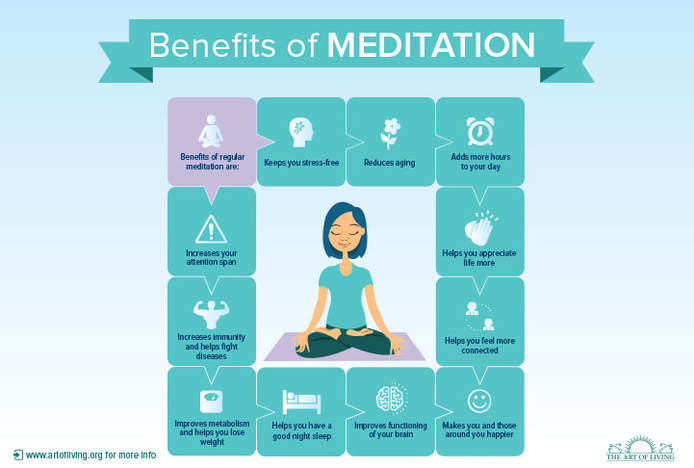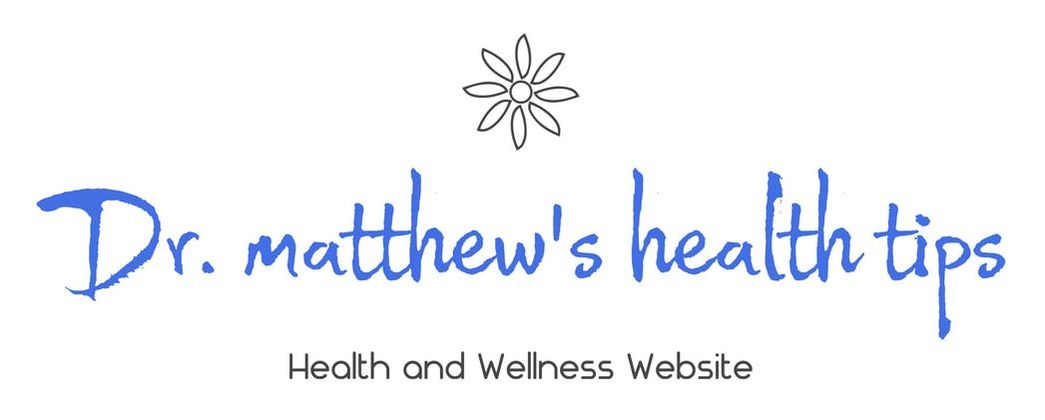|
Meditation is a way to calm the mind and body. It is a mind and body practice that has long been used to increase calmness and physical relaxation, improve psychological balance, cope with illness, and enhance overall health and well being. There are many types of meditation, most of which originated in ancient religious and spiritual traditions. Some forms of meditation instruct the practitioner to become mindful of thoughts, feelings, and sensations and to observe them in a nonjudgmental way. Some consider meditation as an approach to training the mind, comparable to how fitness trains the body. By training in meditation, an inner space and clarity is created that enables us to control our mind. There are many health benefits of meditation; research suggests that practicing meditation may reduce blood pressure, symptoms of irritable bowel syndrome, anxiety and depression, and insomnia. Types of Meditation There are many types of meditation, but they generally have four common features. These include: 1) a quiet location with very few distractions, 2) a comfortable posture such as sitting or lying, 3) a focused attention, and 4) an open attitude or letting distractions come and go naturally without judging them. Some of the most common types of meditation are described below.
Benefits of meditation Health Benefits During meditation, the breath slows down, heart rate slows, blood pressure decreases, digestive function improves and tension in the body decreases. As a result, there are numerous health benefits that one can gain from meditating over a long period of time. Studies have found that meditation can: 1. Increase immune function 2. Decrease Inflammation 3. Reduce Pain Improves Mental Health Meditation involves focusing one’s mind for a period of time, which can result in a feeling of relaxation and inner peace; this can improve mental health. Studies have shown that mindfulness meditation can: 4. Decrease symptoms of Depression 5. Decrease symptoms of Anxiety 6. Reduce Stress Improves Brain Function Studies have shown that persons who practiced meditation for many years have more folds in the outer layer of the brain. This process may increase the brain’s ability to process information. There are other physical changes in the brain that could occur from meditation as well. Meditation has been proven to: 7. Increase focus & attention 8. Improve the ability to multitask 9. Improve memory 10. Increase creativity Meditation exercise A simple example of how to meditate is described below. You can try doing this for about 5 minutes.
For more tips on how to meditate visit the link below. https://www.artofliving.org/us-en/8-tips-get-started-meditation Tip#1: Doing it right? Do not get caught up in the details of how you should meditate, in terms of the best location, best position, etc. Meditation does not have to perfect, just ensure that you are comfortable and in a quiet place where you will not be easily distracted. Tip#2: Do not become attached to thoughts During meditation, your mind will wander; thoughts will be jumping in an out of your mind. Simply allow these thoughts to pass by. Try not to attach yourself to the thoughts, just recognize them and allow them to pass. Tip#3: Falling asleep It is very possible to fall asleep during meditation. For this reason it is important to always stay present or aware. Although it is vital to be relaxed, you should avoid sitting in a reclined position and should avoid lying in bed when meditating as these positions increase the risk of falling asleep. Tip#4: Best time to meditate The best way to start a meditation routine is to practice every single morning. It is a good way to start the day and is usually the easiest time to find a few uninterrupted minutes. However, some persons may find it more convenient to meditate at the end of the day. You can also take a few minutes to meditate at work or anywhere suitable for you. The most important thing is to pick a time that is appropriate and to be consistent. Tip#5: Start Small and increase slowly You do not have to start out with long meditations at first. You can meditate for about 2-5 minutes each day for a week, which would give you a feel for it. It takes time to build your concentration. After a week, you can start adding more time. Many of the studies done on meditation saw health benefits in persons who meditated for at least 20 minutes a day. However, it is not the length of time that matters, but rather the consistency and commitment to doing it every day that counts. Tip#6: Meditation Assistance There are a few things you can consider if you need more motivation to meditate. Guided Meditations are very useful for beginners. These are audio tracks where someone walks you through each step of the meditation, and you basically follow the instructions. YouTube has a good selection of these available. You can also attend a meditation class, and meditate with a group. This is a form of guided meditation. Alternatively, you can meditate with a friend. Doing this may help you feel more motivated to meditate and help you to stay committed. Tip#7: Christian meditation Meditation is accepted in most religions. In Christianity, the bible speaks about meditating on God and on God’s word. If you want to learn more about Christian mediation including the concept of “lectio divina” (divine reading), click the links below. https://www.allaboutgod.com/christian-meditation.htm https://www.huffingtonpost.com/elizabeth-pessin/should-christians-meditat_b_9170716.html https://www.crosswalk.com/faith/spiritual-life/10-things-you-should-know-about-christian-meditation.html Tip#8: Conventional medical care It is important that you do not use meditation to replace regular medical care, or as a reason to delay seeing a health care provider about a medical problem. I hope these tips on Benefits of Meditation were helpful; Remember, Your health is invaluable. By Dr. J. Lawarna Matthew Acknowledgements National Center for Complementary and Integrative Health (NICCH) https://nccih.nih.gov/health/meditation Better Health https://www.betterhealth.vic.gov.au/health/conditionsandtreatments/meditation# Heart.org https://www.heart.org/en/healthy-living/healthy-lifestyle/mental-health-and-wellbeing/meditation-to-boost-health-and-wellbeing Visit the links above for more information.
0 Comments
Leave a Reply. |
AuthorDr. J. Lawarna Matthew Archives
January 2021
Categories |

 RSS Feed
RSS Feed
